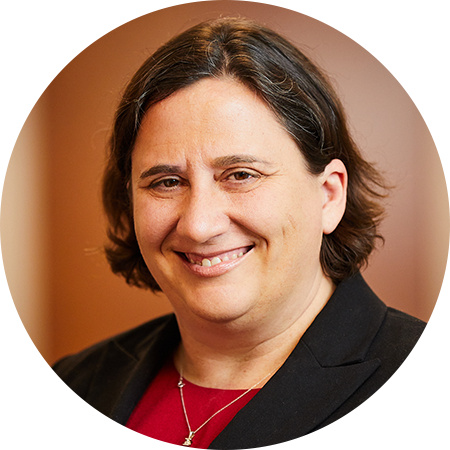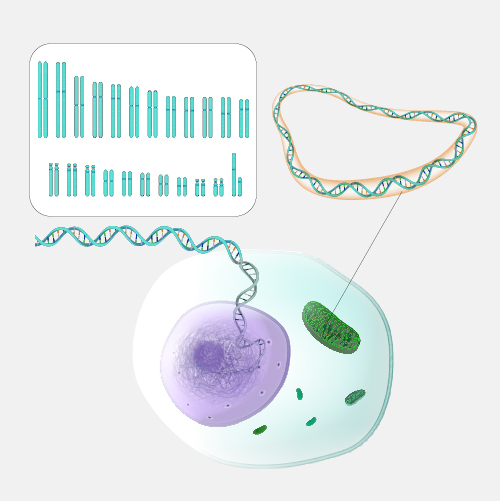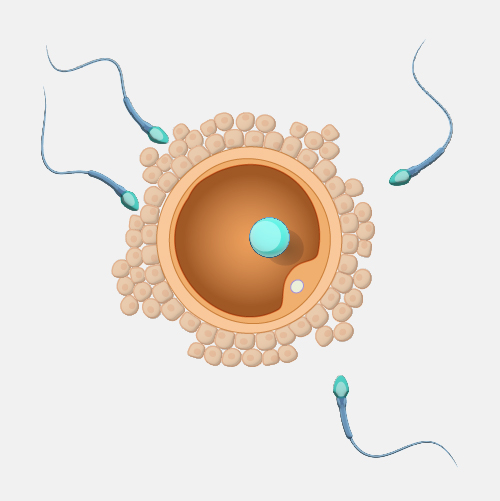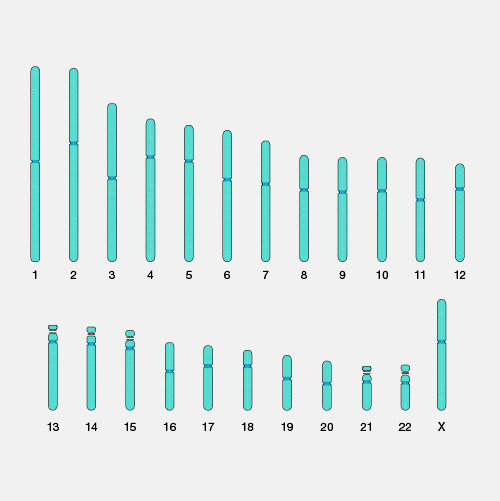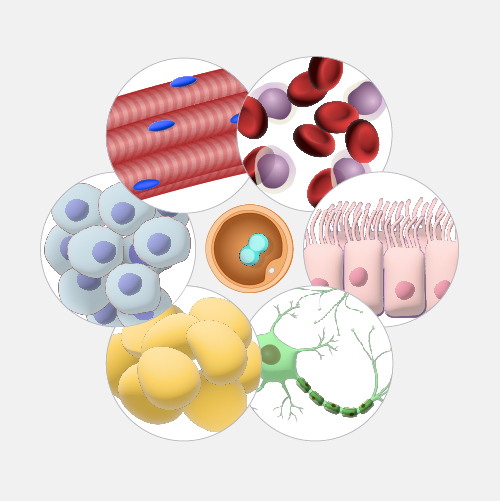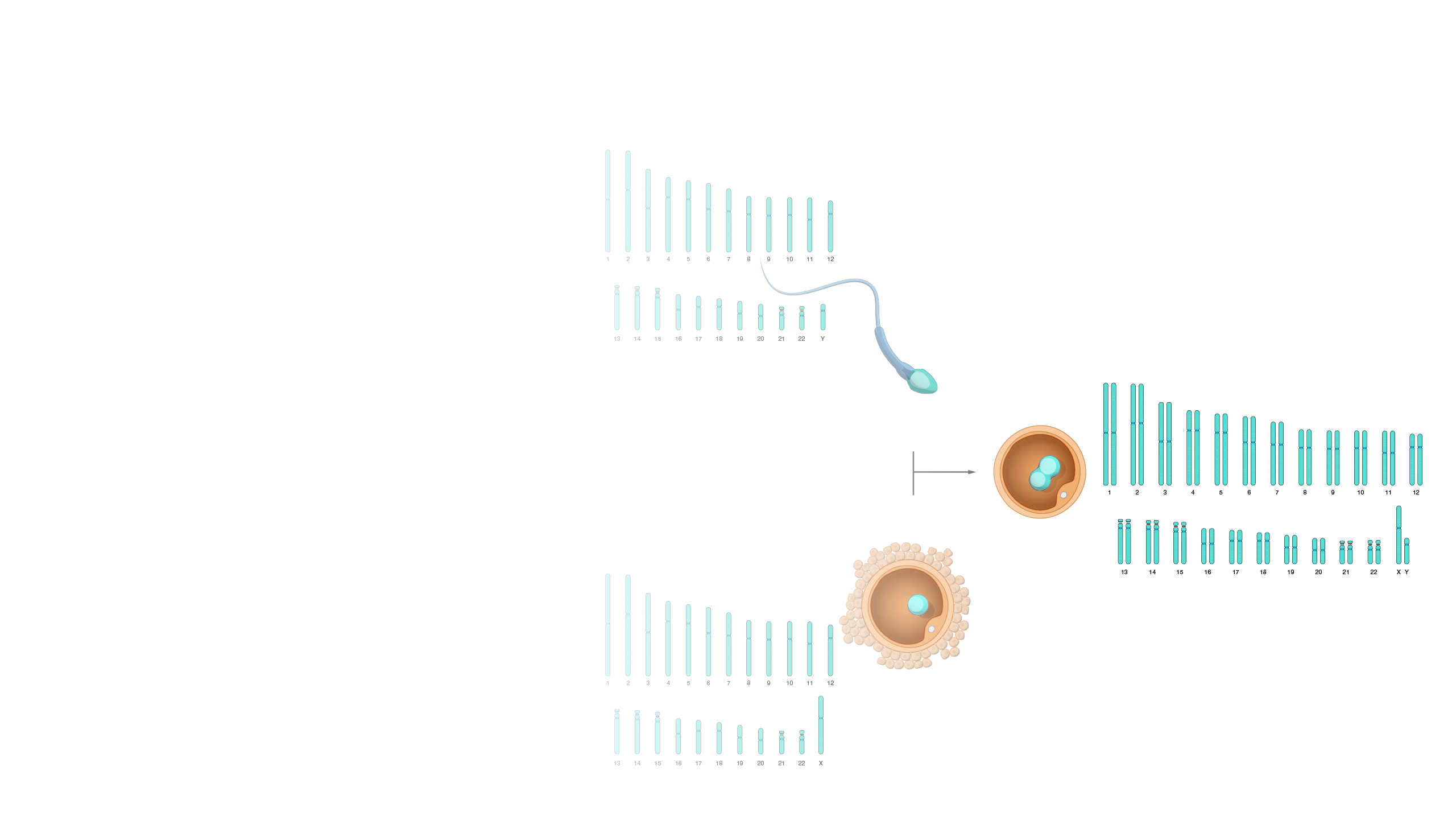
Diploid
Definition
Diploid is a term that refers to the presence of two complete sets of chromosomes in an organism’s cells, with each parent contributing a chromosome to each pair. Humans are diploid, and most of the body’s cells contain 23 chromosomes pairs. Human gametes (egg and sperm cells), however, contain a single set of chromosomes and are said to be haploid.
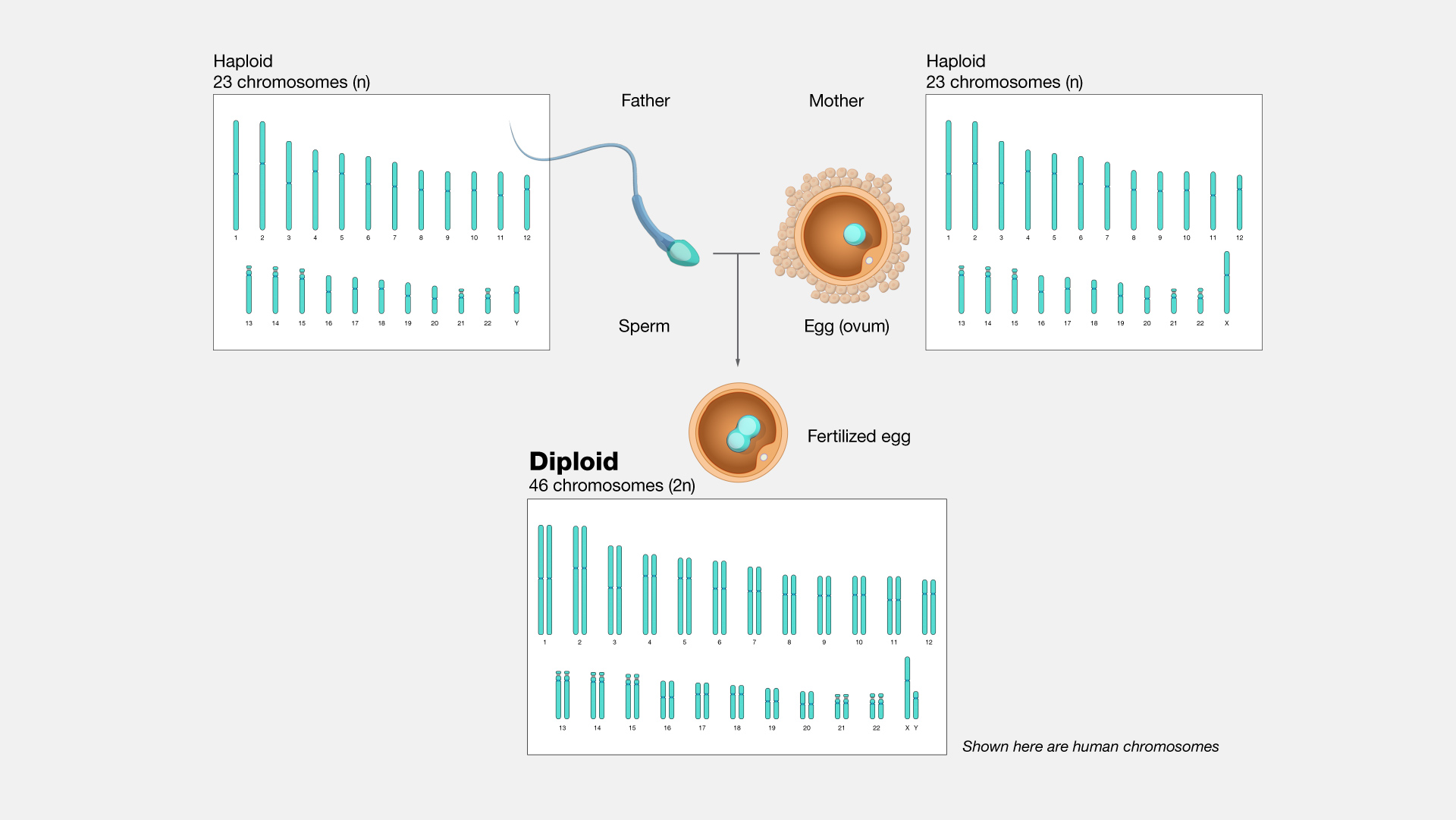
Narration
Diploid. A diploid cell has two complete sets of chromosomes. Most cells in humans are diploid, comprising 23 chromosome pairs, so 46 chromosomes in total. This is 22 pairs of autosomes and a pair of sex chromosomes. One copy of each chromosome pair came from the individual's mother and the other from the individual's father. Since we have two copies of each chromosome, we also have two copies of every gene. Most mammals are diploid, like humans, but some organisms are polyploid, meaning they have more than two sets of each chromosome. For example, your standard grocery store strawberry is octoploid, with eight complete sets of seven chromosomes each, or 56 chromosomes in total, if you do the math.
